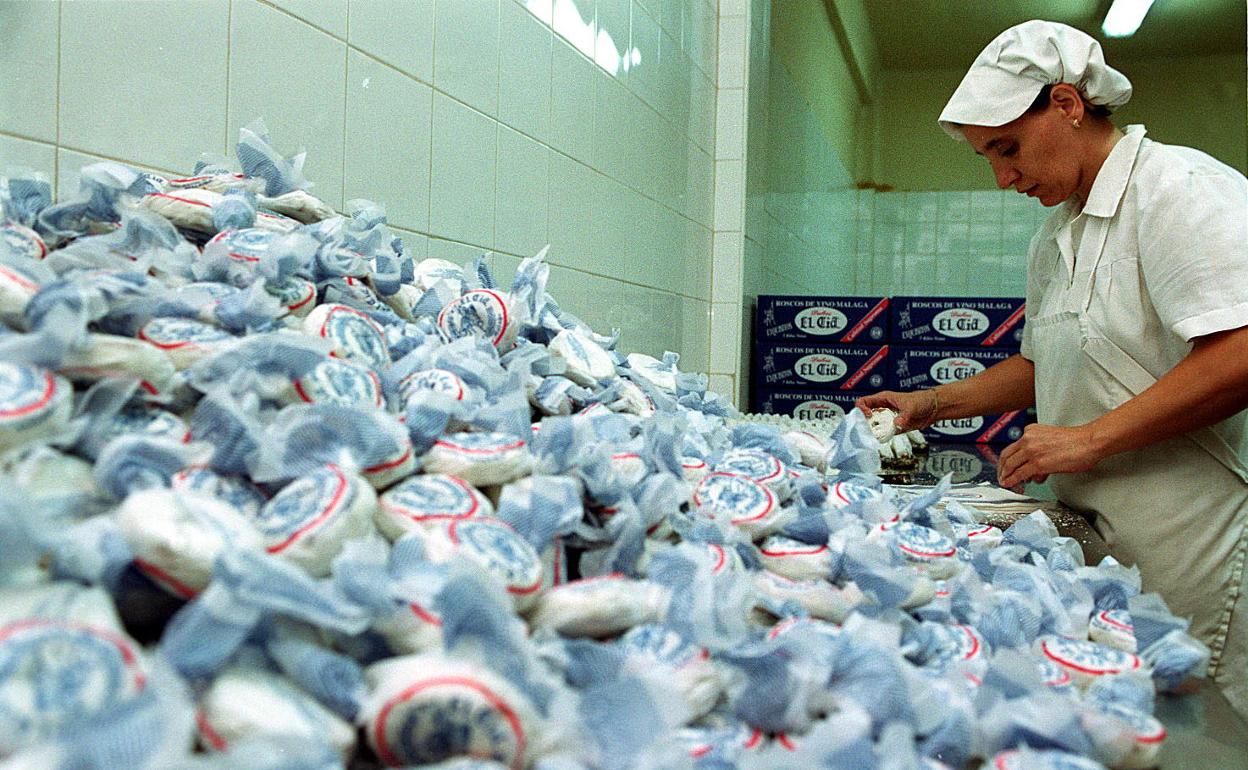

Sections
Highlight

Tony Bryant
Friday, 10 December 2021, 16:10
Roscos de vino, little cakes that are cooked in wine and shaped like a ring doughnut, are a typical sweet eaten during Christmas all over Spain, yet the most authentic are said to be those of La Mancha and Malaga.
These types of Spanish Christmas pastries have been a staple of Andalusian cuisine for centuries, although it is difficult to determine the exact place and time of origin.
As with many of the traditional sweets and pastries found in Andalucía, roscos de vino probably have their origins in Moorish culinary traditions.
Roscos de vino are usually made with flour, lard and sugar, and flavoured with anise, cinnamon and sesame seeds. They are cooked in sweet wine, usually muscatel, and coated in icing sugar. However, the ingredients and methods used to cook them vary greatly. Some confectioners toast the flour and some do not. There are those who use only lard as fat, or only olive oil, or a mixture of both.
These festive delicacies fill the shelves of supermarkets during the Christmas period, along with other typical sweets such as polvorones and mantecados, but roscos de vino are distinguished by their doughnut shape and by being firmer and less powdery in texture.
One of the most popular varieties, which is known throughout the world, is produced by a family from Malaga.
The Angulo family business began in 1931, the year of the proclamation of the second Spanish Republic, when Don Angulo, a confectioner from Lora del Rio Seville, was transferred to Malaga for stomach surgery. Once recovered Angulo decided to remain in Malaga, setting up a confectionery business in the district of La Trinidad. The business is now 90 years old and run by a third generation. Their products which carry the El Cid trade mark, are among the most artisan in Andalucía and are far superior - seeing as around 80 per cent of the process is executed by hand - than the manufactured style of the cake found on supermarket shelves this time of year.
The family’s products are not only sold in shops during December but also distributed among the poor and needy, a charitable offering that began during the Civil War and the years of hunger that followed.
Don Angulo managed to carve out a niche in the world of confectionery, and following his death in 1974 his children took over the business.
In addition to being the creators of the city’s most popular festive sweets, the Angulo family consider themselves as the first importers of sunflower seeds to Malaga.
Over the years, there have been many changes in the bakery but the recipe remains the same.
The company now exports to countries such as France, England, Germany, Belgium and Morocco.
Publicidad
Publicidad
Publicidad
Publicidad
Esta funcionalidad es exclusiva para registrados.
Reporta un error en esta noticia

Debido a un error no hemos podido dar de alta tu suscripción.
Por favor, ponte en contacto con Atención al Cliente.

¡Bienvenido a SURINENGLISH!

Tu suscripción con Google se ha realizado correctamente, pero ya tenías otra suscripción activa en SURINENGLISH.
Déjanos tus datos y nos pondremos en contacto contigo para analizar tu caso

¡Tu suscripción con Google se ha realizado correctamente!
La compra se ha asociado al siguiente email
Comentar es una ventaja exclusiva para registrados
¿Ya eres registrado?
Inicia sesiónNecesitas ser suscriptor para poder votar.